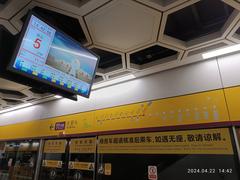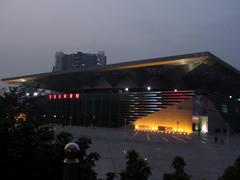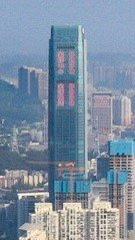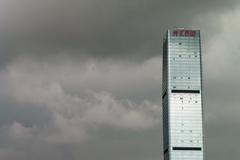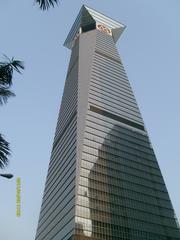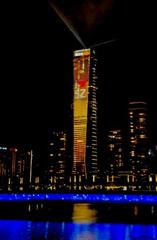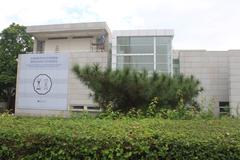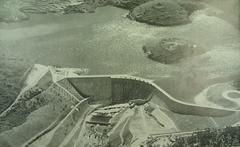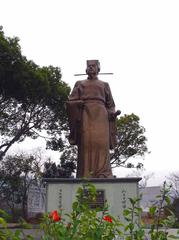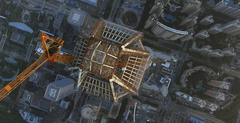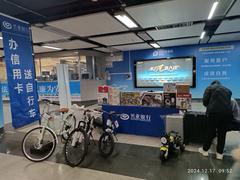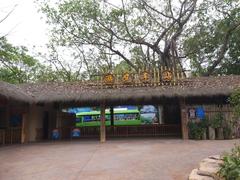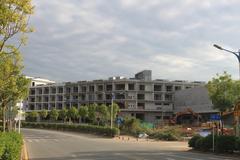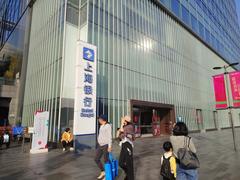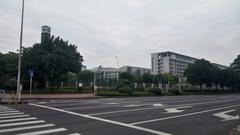Fairylake Botanical Garden Shenzhen: Visiting Hours, Tickets, and Travel Guide
Date: 15/06/2025
Introduction
Fairylake Botanical Garden (Xianhu Botanical Garden) is one of Shenzhen’s premier natural and cultural landmarks. Established in the 1980s, it now spans nearly 590 hectares between Wutong Mountain and Shenzhen Reservoir. The garden features over 7,800 plant species in 17 specialized zones, rare tropical and subtropical collections, desert plants, fossil forests, and significant cultural sites like Hongfa Temple. As a national research institution affiliated with the Chinese Academy of Sciences, Fairylake leads conservation, plant genomics, and urban ecology initiatives.
Visitors enjoy tranquil lakeside strolls, vibrant flower exhibitions, and family-friendly facilities, all at affordable prices. The garden is known for its accessibility, environmental education programs, and community events that raise awareness about biodiversity and sustainable urban landscapes.
This guide provides essential information on visiting hours, ticketing, transportation, accessibility, nearby attractions, and the garden’s scientific mission. Whether you seek peaceful nature, education, or cultural enrichment, Fairylake Botanical Garden is an unparalleled destination in Shenzhen. For the latest details, refer to the official resources (SZBG History, BGCI Profile, SZBG Science).
Table of Contents
- Origins and Development of Fairylake Botanical Garden
- Visiting Hours and Ticket Information
- Getting There: Transportation Guide
- Accessibility and Visitor Services
- Garden Highlights and Must-See Attractions
- Institutional Significance and Scientific Mission
- Role in National and International Botanical Networks
- Frequently Asked Questions (FAQ)
- Plan Your Visit: Tips and Recommendations
- References
Origins and Development of Fairylake Botanical Garden
Fairylake Botanical Garden was conceived in the early 1980s during Shenzhen’s rapid urbanization. Construction began in 1983, guided by renowned landscape architects like Prof. Meng Zhaozhen and Mr. He Fang. Officially opening to the public in 1988, it occupies a strategic location between Wutong Mountain and Shenzhen Reservoir, covering 546 hectares (SZBG History). The vast grounds enabled the creation of diverse thematic gardens, research facilities, and conservation centers, making Fairylake one of China’s largest and most ambitious botanical gardens (BGCI Profile).
Visiting Hours and Ticket Information
-
Opening Hours:
- General: 6:00 AM to 6:00 PM daily
- Early Morning (6:00–8:00 AM): Free entry, fewer crowds
- Extended hours (to 11:00 PM or 24-hour access) on special Buddhist festival days
-
Ticket Prices:
- Adults: 20–30 RMB
- Seniors/Children: 10–15 RMB (discounted)
- Children under 1.2m: Free
- Group rates available for schools and large parties
-
How to Buy Tickets:
- Onsite at the entrance
- Online via the official website and authorized travel platforms
(SaysChing Travel Blog, East China Trip)
Getting There: Transportation Guide
-
By Metro:
- Line 2 to Luohu or Xianhu Road Station (closest stops)
- Line 3 to Fairylake Botanical Garden Station (Exit A)
- Short bus/taxi ride or 10-minute walk from metro stations
-
By Bus:
- Multiple city bus routes serve the main entrance on Xianhu Road
-
By Car:
- Onsite parking available
-
Onsite Mobility:
- Electric shuttle buses connect major attractions
- Rental bikes and well-marked walking paths
Accessibility and Visitor Services
Fairylake Botanical Garden is designed for universal accessibility:
- Paved paths, ramps, and shuttle buses for visitors with mobility challenges
- Accessible restrooms and frequent seating areas
- Clear bilingual signage (Chinese and English)
- Clean restrooms, cafes, and snack kiosks throughout the park
- Navigation maps and visitor rules ensure a safe, enjoyable visit
Garden Highlights and Must-See Attractions
Thematic Areas
-
Heaven & Earth Area:
Ornate floral displays, photogenic entrance, seasonal exhibitions -
Fairylake Area:
Central man-made lake with bridges, pavilions, and scenic walkways; offers boating and serene vistas -
Hongfa Temple:
Major Buddhist temple, cultural hub with traditional architecture and frequent festivals -
Desert Plant Area:
Over 1,000 species of cacti and succulents in large greenhouses; one of China’s largest desert plant collections -
Fossil Forest Area:
Features petrified wood specimens and interpretive signage about ancient flora -
Conifers Azalea Area:
Diverse conifer and azalea collections, especially vibrant during the blooming season
Specialized Plant Collections
- Shade Plant Section: Rare ferns, tropical aroids, and endangered species
- Aquatic Plant Garden: Water lilies, lotuses, and aquatic plant displays in classical Chinese style
- Fruit Collection: Mango, jackfruit, longan, and litchi cultivars
- National Cycad Conservation Center: Second in the world for cycad diversity
Additional Attractions
- Shenzhen Paleontological Museum: Fossil and dinosaur exhibits for families and science lovers
- Butterfly and Orchid Valley: Ideal for nature enthusiasts and photographers
- Seasonal Flower Shows: Cherry blossoms in spring, bougainvillea in autumn
Institutional Significance and Scientific Mission
Research & Conservation
Fairylake is a leading institution in plant conservation, research, and education:
- Affiliated with the Chinese Academy of Sciences since 2009 (SZBG Science)
- Hosts the Systematical and Evolutional Botany National Key Laboratory
- Focuses on ex situ conservation of tropical and subtropical plants, plant genomics, and urban ecology
- Houses over 70,000 specimens in its herbarium and a 12,000-volume plant library
Education & Urban Greening
- Offers exhibitions, science trails, and interactive programs to foster public environmental awareness
- Develops urban greening technologies and guides Shenzhen’s landscape innovation
Role in National and International Botanical Networks
- Member of Botanic Gardens Conservation International (BGCI Profile)
- Collaborates globally on plant conservation, invasive species, and climate change resilience
- Maintains living collections and seed banks as genetic reservoirs for threatened species
Frequently Asked Questions (FAQ)
Q: What are the visiting hours?
A: 6:00 AM–6:00 PM daily, with extended or 24-hour access during major Buddhist festivals.
Q: How much are tickets?
A: 20–30 RMB for adults; discounts for seniors and children; children under 1.2m free.
Q: How do I get there by public transit?
A: Metro Line 2 or 3, plus a short walk or bus/taxi ride.
Q: Is the garden accessible for wheelchair users?
A: Yes, with paved paths, ramps, and shuttle bus services.
Q: Are pets allowed?
A: No, to protect wildlife and maintain cleanliness.
Q: Are guided tours and educational programs available?
A: Yes, bookable at the visitor center or online.
Q: Is parking available?
A: Yes, onsite parking is provided.
Plan Your Visit: Tips and Recommendations
- Wear comfortable shoes and bring sun protection and mosquito repellent.
- Start early to avoid crowds and heat.
- Bring snacks and water, as food options are limited.
- Download the Audiala app for interactive maps, updates, and guided experiences.
- Check the official website for updates on ticketing and events.
Conclusion
Fairylake Botanical Garden is a vibrant blend of nature, culture, and science—a must-visit destination in Shenzhen. Its extensive plant collections, accessible facilities, and engaging programs make it ideal for families, researchers, and tourists. Plan ahead, take advantage of the garden’s amenities, and enjoy a day immersed in one of China’s leading botanical institutions.
For the latest updates, ticketing, and event information, visit the official Fairylake Botanical Garden website.
